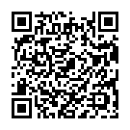Stolen identities? What authors can learn from the case of SAGE's mass retraction
As publishing a paper in journals with a Thompson-Reuter impact factor becomes increasingly important for academics and researchers, it should come as no surprise that they will go to any length to publish. One such means that has come to the fore in prior scandals is
paying to have one’s name appear as one of the authors of a paper. The recent announcement by a major publisher,
SAGE, that it is retracting as many as 60 papers in one go that appeared in
the Journal of Vibration and Control, has exposed yet another unethical means to easy publication - rigging the review process using false identities. These fake names represent independent reviewers who can be guaranteed to provide a favourable review, recommending publication. The blog
Retraction Watch broke the
story, which was picked up by several influential publications including The Washington Post, which reports that the ring involved ‘
up to 130 [such fake identities] in an apparently successful effort to get friendly reviews of submissions and as many articles published as possible’. In one case, the author reviewed that paper himself using a false identity he had created earlier. The Education Minister of taiwan, Chiang Wei-ling, has resigned in the wake of the scandal, as his name appears on several of the retracted papers.
Regardless of how further investigations proceed, the SAGE case highlights the need for academics to be alert, because in some instances real names and real institutions were used without the knowledge of the scientists thus impersonated. Here are a couple of tips that may help you avoid such situations:
- Although it may be seen as vanity, it is better to run a search with your name and that of your institution once in a while to see what turns up: for all you know, you may see your name featured as a reviewer (some journals publicly thank their reviewers by publishing the names of all those who reviewed for that journal in a given year).
- You could even set up a Google Alert with your name as a search term.
- Although it is good to see your paper being cited, make it a point to look up the citing paper. This is all the more important because there have been cases of authors taking published data, making minor modifications, and using the data to publish a different paper.
Contributors
